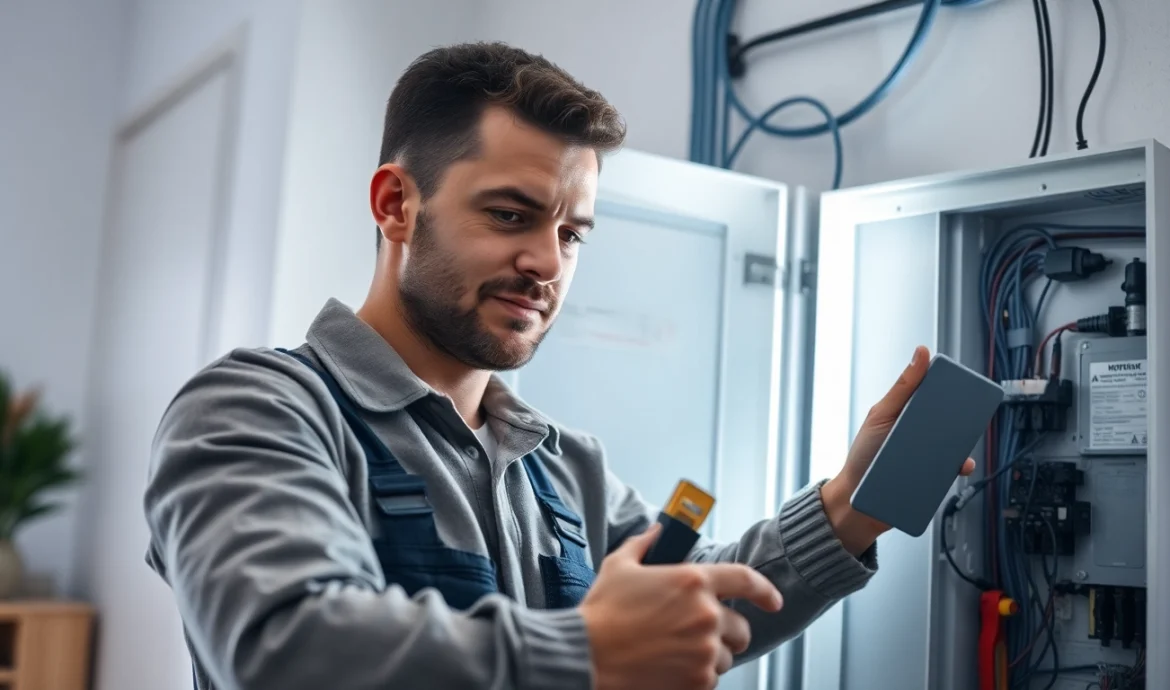Understanding the Importance of Electrical Panel Clearwater
In any home, the electrical panel serves as the nucleus of your electrical system. Often overlooked, possessing an efficient and updated Electrical Panel Clearwater is crucial for both safety and functionality. Whether you own an older property or are simply looking to modernize your electrical infrastructure, understanding your electrical panel’s significance can be a game changer.
What is an Electrical Panel?
An electrical panel, also known as a breaker box or distribution board, is a metal box that houses the main circuit breaker and various other breakers. Its primary function is to distribute electricity from the utility line to different circuits in your home. It monitors the electrical load, ensuring safe and balanced power usage throughout your electrical system.
Roles and Functions of Electrical Panels
The electrical panel serves several key roles:
- Power Distribution: It routes electrical power from external sources to circuits in your home.
- Load Management: It helps prevent overloaded circuits by using circuit breakers or fuses, which shut off electricity when an overload occurs.
- Safety Monitoring: Equipped with safety features, such as ground fault circuit interrupters (GFCIs) and surge protectors, the panel enhances the safety of the electrical system.
Benefits of Upgrading Your Electrical Panel Clearwater
Upgrading to a modern electrical panel offers numerous benefits:
- Increased Safety: Modern panels contain improved safety features to reduce risks of fire and electric shocks.
- Enhanced Capacity: With growing electrical demands, newer panels can support a higher amperage, allowing for more circuits.
- Better Efficiency: New technologies in electrical panel designs can reduce energy loss, translating into lower energy bills.
Signs You Need to Upgrade Your Electrical Panel Clearwater
Frequent Circuit Breaker Trips
If you notice that your circuit breakers are frequently tripping, it could indicate that your electrical panel cannot handle the load. Constantly resetting the breakers can be more than just an inconvenience; it signals an overloaded system that may be unsafe.
Inadequate Power Supply for Modern Needs
As more household appliances evolve and require greater power, an outdated panel may struggle to meet the demands. If you’re adding devices like electric vehicles, air conditioning, or home theaters, it’s prudent to evaluate your panel’s capacity.
Outdated Electrical Components
Older panels may use outdated technology, posing risks associated with obsolescence. Components made before modern electrical codes may not provide adequate safety measures, making it essential to consider an upgrade.
Choosing the Right Electrical Panel for Your Clearwater Home
Types of Electrical Panels Available
When selecting an electrical panel, homeowners can choose from several types:
- Main Breaker Panel: This is the standard panel found in most homes, allowing for manual shutoff of all circuits.
- Sub-Panels: These are additional panels used to distribute power to specific areas of your home, ideal for extensive renovations or large homes.
- Combination Panels: These panels are suitable for homes requiring both residential and commercial use.
Factors to Consider When Upgrading
Several considerations are paramount when upgrading your electrical panel:
- Amperage Requirements: Determine the amperage you need based on your current and future electrical consumption.
- Budget: Assess not just the cost of the panel itself but the installation costs and any potential upgrades required to accommodate the new panel.
- Local Building Codes: Make sure the selected panel meets any local electrical codes and regulations.
Professional Installation Considerations
Hiring qualified electricians ensures that your new panel is installed safely and correctly. Professionals will also ensure that the installation adheres to all local codes and regulations, minimizing risks associated with improper installation.
Cost Implications of Electrical Panel Upgrades in Clearwater
Understanding Upgrade Costs
The cost of upgrading your electrical panel can vary widely based on various factors, including location, complexity of the installation, and the specifications of the new panel. Homeowners can expect to pay anywhere from $1,000 to $3,000 or more for a complete panel upgrade. Additionally, if new wiring or other upgrades are necessary, this will add to the total cost.
Long-Term Savings and Efficiency
Investing in a new electrical panel is not just an upfront cost. Over time, an upgraded panel can lead to savings through greater energy efficiency. Improved load management means less energy wastage, resulting in lower electric bills long-term.
Financing Options for Homeowners
Homeowners may explore various financing options to manage upgrade costs more effectively. Some common financing routes include home equity loans, installment plans from electricians, or even credit cards with introductory offers.
Maintaining Your Electrical Panel Clearwater Post-Upgrade
Regular Inspections and Safety Checks
After upgrading your panel, regular inspections are critical. Homeowners should consider scheduled checks every five years or sooner if any issues arise. Routine maintenance not only prolongs the life of your panel but also enhances safety.
Common Issues to Watch For
Pay attention to signs that may indicate problems with your electrical panel, such as:
- Burning smells or visible damage.
- Frequent breaker trips.
- Unusual noises from the panel.
When to Call a Professional Electrician
If you notice any alarming signs or if regular maintenance checks reveal serious issues, it is wise to consult a professional electrician. Delaying repairs can lead to more significant problems, endangering your safety and that of your property.

Leave a Reply